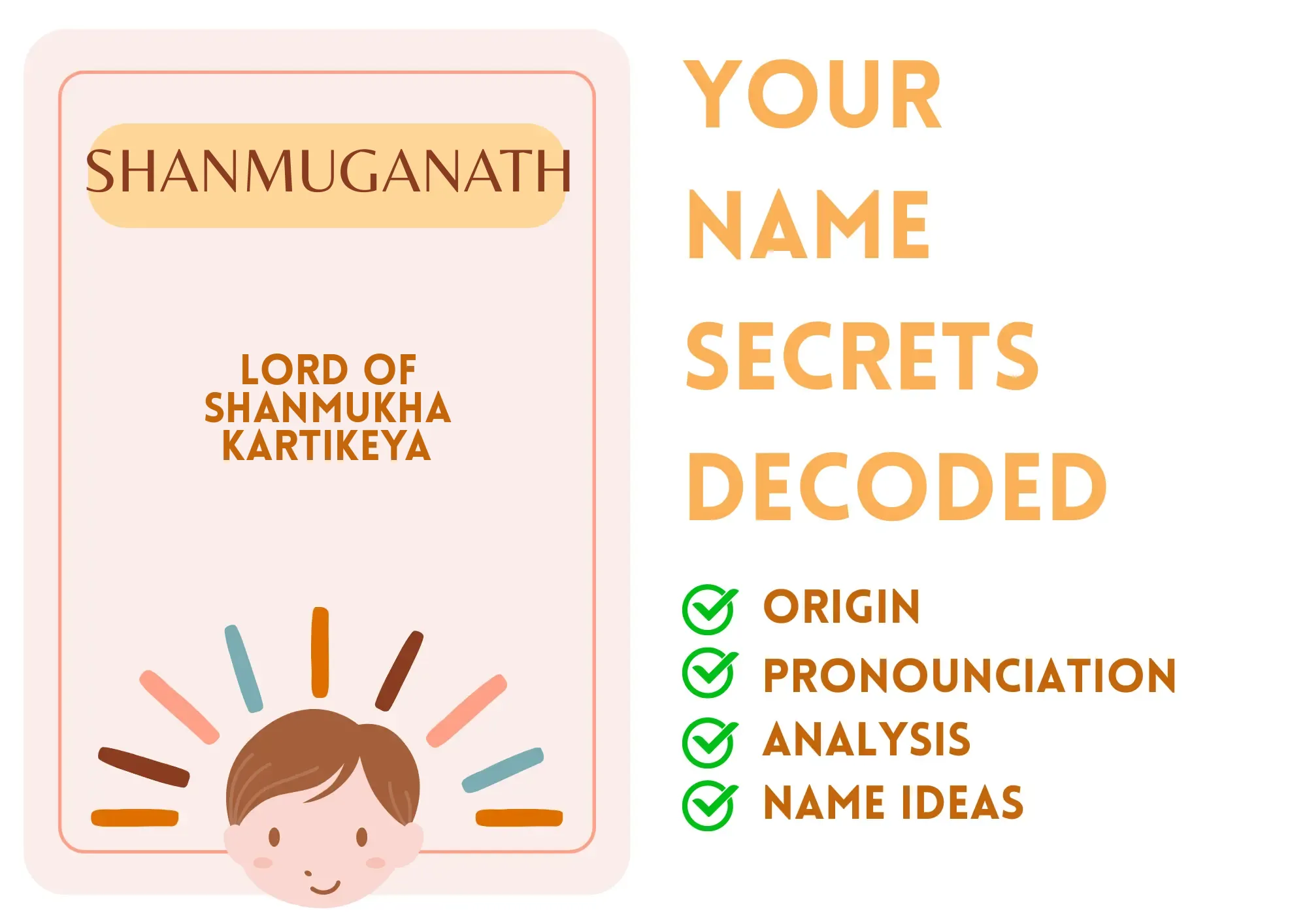
Shanmuganath
Shanmuganath is a name of rich cultural and religious significance, primarily derived from Sanskrit and common in Hindu communities. It translates to 'Lord of Shanmukha', referring to Lord Kartikeya, known as the six-faced deity representing war and victory. The name is predominantly masculine, used widely in India and among Indian diasporas.
Celebrated for its connection to Hindu mythology, Shanmuganath signifies strength, valor, and divine protection. It is appreciated for its profound spiritual undertones, often chosen for boys in the hopes that they embody these qualities.
The name has historic relevance in Indian culture and is recognized in various expressions of art and literature. Many hold a positive perception of the name due to its association with benevolence and guardianship.
Basic Information
Gender: Boy
Sounds Like: SHAN-moo-gah-nath
Pronunciation Explanation: The first syllable is emphasized 'SHAN', the second syllable is pronounced 'moo' quickly, followed by 'gah' and ending with 'nath'.
Summary and Meaning
Meaning: Lord of Shanmukha (Kartikeya)
Origin: The name has Indian origins, embedding itself in the cultural and religious landscapes of Hinduism.
Usage: Shanmuganath is a traditionally masculine name, stemming from devotion to Lord Kartikeya.
Name Number (Chaldean)
Name Number (Pythagorean)
Name Constellation (Nakshatra)
Name Zodiac Sign (Rashi)
Popularity (Global Rank)
Overall: 1327923
Boys: 72681
Most Popular in
Religious and Cultural Significance
Religion: Hindu
Background: In the Hindu tradition, Shanmuganath represents Lord Kartikeya, the god of war and a son of Lord Shiva, underscoring the name's divine importance.
Cultural Significance: Shanmuganath is culturally significant as it honors one of the revered deities in Hinduism, embodying the ideals of courage and victory.
Historical Significance: The name carries deep historical significance linked to ancient texts and scriptures, which depict Lord Kartikeya as a powerful warrior deity responsible for leadership and guidance in battle.
Popular Culture
Literature and Mythology: References to Shanmuganath can be found in various Hindu mythological texts, detailing the exploits of Kartikeya.
Movies and Television: The name may appear in devotional films or series focusing on mythological narratives where Lord Kartikeya is a central character.
Feelings and Perceptions
Perception: Generally, Shanmuganath is perceived with reverence and respect, given its religious connotation. It evokes feelings of strength and protection.
Positive Feelings: Powerful, revered, auspicious, protective.
Negative Feelings: Some may find it challenging to pronounce or spell.
Practical Considerations
Ease of Writing and Calling: Shanmuganath, while meaningful, is relatively long and can be cumbersome to write and pronounce for some. However, once familiar, it is easy to call out.
Common Typos and Misspellings: ShanmugaNath,Shanmaganath,Shanmughanath,Shanmuagnath
Common Nicknames: Shan,Mugu,Nath
Shanmuganath Popularity
Shanmuganath Usage and Popularity By Country
| Country | Rank (Overall) |
|---|---|
| India | 245526 |
Shanmuganath Usage and Popularity By City
| City | Rank (Overall) |
|---|
Compatibility Analysis
Famous Persons Named Shanmuganath
No results found for Shanmuganath.
Related Names
Similar Sounding Names:
Shanmukha,Shardul,Shashank,Shanice